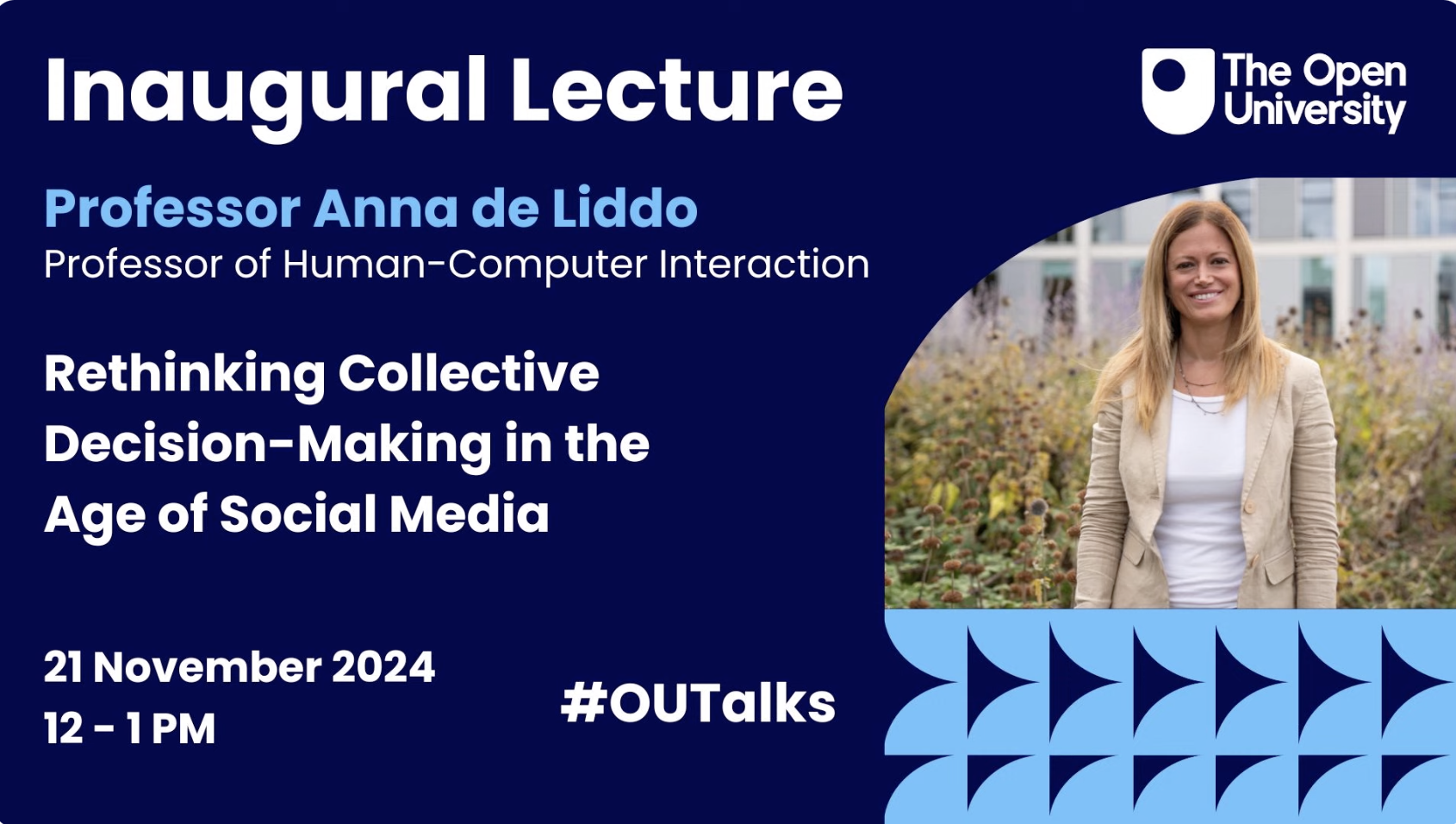Dealing with ‘wicked’ problems
If like me you are so utterly depressed by the current state of political debate and discussion in Western democracies (it’s not just Trump – see ‘Axe the Tax’ from Pierre Poilievre, or ‘more money in your pocket’ from Justin Trudeau or ‘a buck a beer’ from Doug Ford, in Canada), and even more so by the negative effects of current social media on political debate and government decision-making, then this lecture from Anna de Liddo, the new head of the Knowledge Media Institute in the UK’s Open University, is essential watching.
Wikipedia states that In planning and policy, a wicked problem is a problem that is difficult or impossible to solve because of incomplete, contradictory, and changing requirements that are often difficult to recognize.
Tackling climate change, resolving homelessness, curing drug addiction, eliminating poverty, providing a family doctor for everyone, are all examples of wicked problems. There is no single, simple solution to any of these problems. Finding adequate solutions requires taking account of multiple perspectives and stakeholders, reaching some form of consensus, and agreeing collectively on the best set of actions.
Current social media have demonstrated clearly that they are not the solution to wicked problems, but part of the problem themselves, leading to polarisation, echo chambers, and simplistic thinking.
If you believe, as I do, that we need an alternative approach to digital technology to tackle wicked problems, and bring more cohesion and understanding to politics, policies and decision-making, then please watch and listen to this lecture. It has given me hope and I think it will do the same for you.
A different design for social media
I cannot do justice to the contents of this lecture, but it is easy to understand (it doesn’t really start until nearly 10 minutes into the recording and the substantive part ends after about 52 minutes, so it is a manageable length.)
What the Knowledge Media Institute (KMI) has done is to develop some simple intuitive social media software that enable if not reconciliation of different viewpoints, at least more nuance in understanding different viewpoints, improves deliberative thinking in online social contexts, provides an intuitive structure for argumentation, and increased self-reflection of one’s own views.
These tools have been tested in three general elections in the UK, for building trust across racial lines in Rwanda, for improving online discussion for students in Brazil, and for enabling civic leaders to tackle local government planning in an inclusive and collaborative way.
The software
Anna de Liddo gives examples of two different social media tools developed at the KMI:
I am sure there are more.
Swarm intelligence
Anna de Liddo’s goal is to work towards what she calls ‘swarm intelligence’, whereby social media tools are used to provide continually evolving collective analysis, consensus, and action that provide the best balance of interests among all stakeholders over particular issues.
Conclusion
This is the most interesting and potentially valuable development I have seen in social media. I’m not sure how one can access these tools or whether they are still under development. I hope they are made available as open educational resources and are in a form whereby they could be used immediately by anyone. But that’s another possible wicked problem: how to maintain and continue to develop such software in ways that are open, scalable and sustainable. Don’t expect Big Tech to adopt them.










 Dr. Tony Bates is the author of eleven books in the field of online learning and distance education. He has provided consulting services specializing in training in the planning and management of online learning and distance education, working with over 40 organizations in 25 countries. Tony is a Research Associate with Contact North | Contact Nord, Ontario’s Distance Education & Training Network.
Dr. Tony Bates is the author of eleven books in the field of online learning and distance education. He has provided consulting services specializing in training in the planning and management of online learning and distance education, working with over 40 organizations in 25 countries. Tony is a Research Associate with Contact North | Contact Nord, Ontario’s Distance Education & Training Network.

